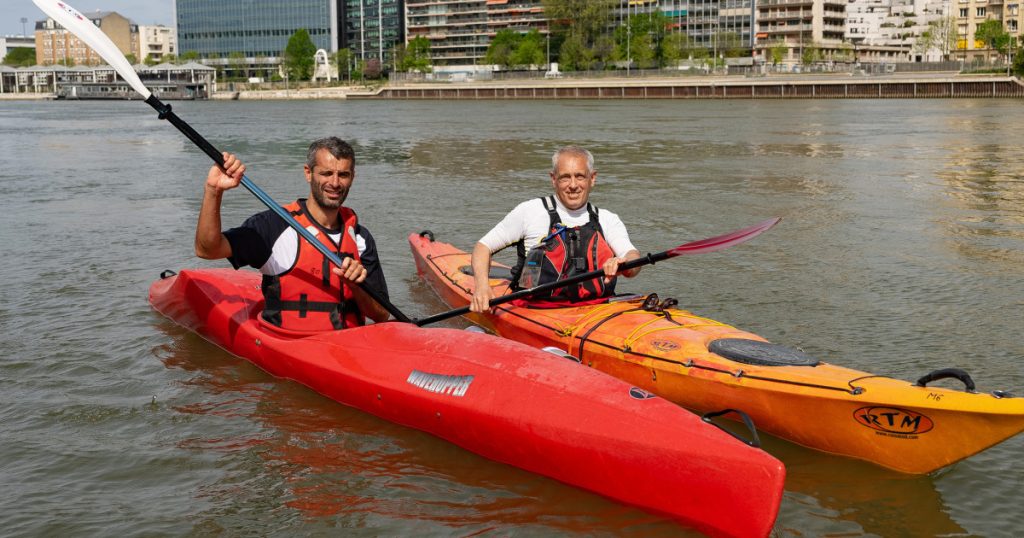With the 2024 Paris Olympics quickly approaching, concerns have been raised about the potential impact of high pollution levels in the Seine River on various events, such as the marathon swim, triathlon, and paratriathlon. Three kayakers from the Arc en Seine Kayak club took to the river to collect garbage and test the water for bacterial levels. Despite their efforts, fears remain that events could be postponed or canceled if pollution levels do not improve. The president of the Paris Organizing Committee expressed confidence that the Seine could be used for the games, but acknowledged that the swimming leg of the triathlon may need to be canceled if pollution levels are too high.
France has invested 1.4 billion euros to improve the water quality of the Seine River and create 13-million-gallon overflow tanks to reduce pollution. Although efforts have been made to open up the river to public swimmers by 2025, concerns about high bacteria levels persist. A test event last August had to cancel the swim portion due to failed pollution tests, raising further doubts about the suitability of the river for Olympic events. Fluidion, a company contracted by the city of Paris to monitor water quality, revealed that e-coli levels in the river were two-and-a-half times higher than considered safe for swimming in a recent sample taken from the Pont Alexander III bridge.
Despite the potential risks posed by high pollution levels, the CEO of Fluidion explained that water quality conditions can improve under certain circumstances, such as low river flow rates and prolonged periods without rain. However, he warned that even minimal rainfall could cause e-coli levels to spike, putting swimmers at risk of developing infections or illnesses. While swimming in polluted water may not always result in immediate harm, there is still a possibility of contracting pathogenic strains of bacteria that could lead to serious health issues. As the countdown to the 2024 Paris Olympics continues, monitoring and addressing water pollution in the Seine River remains a top priority.
The Arc en Seine Kayak club’s efforts to clean up the Seine highlight the ongoing challenges of pollution in the river, despite extensive measures taken by the French government to improve water quality. The anticipation of Olympic events in the Seine River has raised concerns about the health and safety of athletes participating in water-based competitions. While experts are confident that water quality conditions can improve under certain conditions, the unpredictability of pollution levels poses a significant risk to swimmers. As the Paris Organizing Committee works to ensure the success of the 2024 Olympics, addressing water pollution in the Seine River will be crucial to the safety and well-being of athletes and spectators.
The completion of the 1.4 billion euro sewage system upgrades and the establishment of overflow tanks demonstrate France’s commitment to improving the water quality of the Seine River and enabling public access to swimming areas. However, the cancellation of the swim portion of a test event last August due to pollution concerns underscores the ongoing challenges of maintaining safe water conditions for recreational and Olympic activities. As the games draw closer, continued monitoring and testing of water quality in the Seine will be essential to safeguarding the health of athletes and ensuring the successful execution of water-based events.


